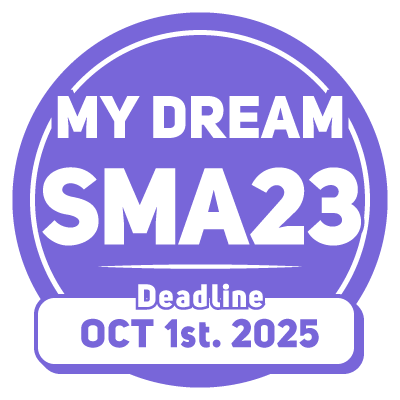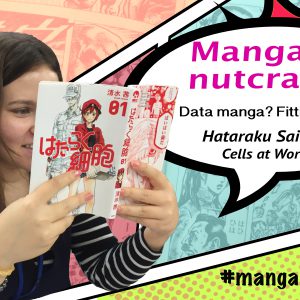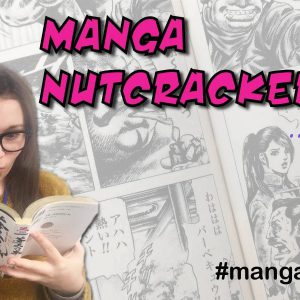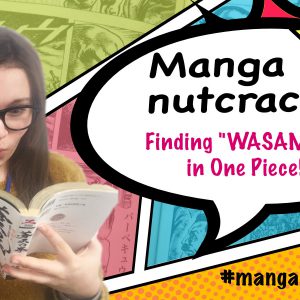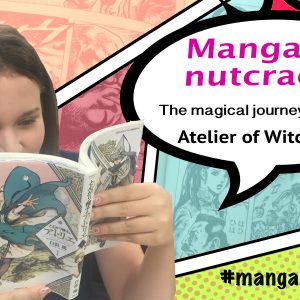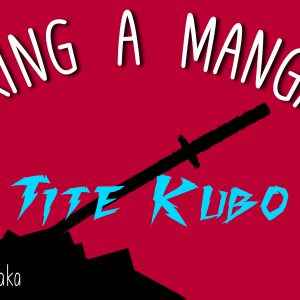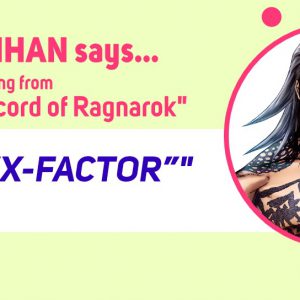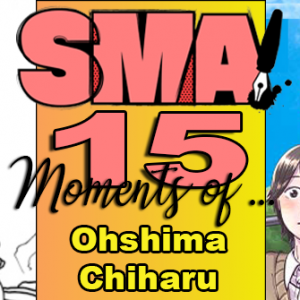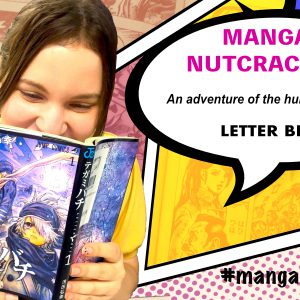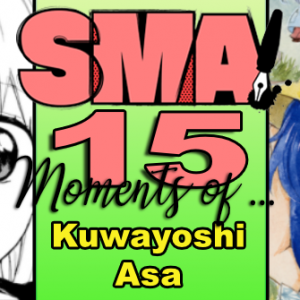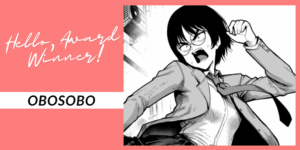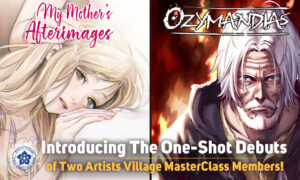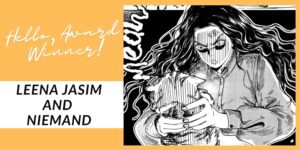Hi! It’s Mayu!
Last time on MANGA INSIDER, I went to ask Mr. Shinnosuke Watanabe, the deputy-chief editor of Monthly Comic ZENON, about what an editor does for his job.
We figured out that an editor has so many things to do, with all those meetings, making articles, handling the article to the press, checking mistakes, and planning the sales strategy … what a tough job!
However, Mr. Watanabe says that this is only half of the whole job!
What could the rest be…? Let’s dig deeper!
-So, what is the rest of the editor’s work? The other half is all the work needed in order to plan new projects, like looking for new talent, training the rookie manga artists, approaching artists from other Magazines, studying new thing, etc. Sometimes we just casually visit a Manga artist once a month, in the hopes that he will work with us in a few years! Beside the on-going jobs, we need to do a lot of things which focus on the future. With so many things to do, we do sometimes get confused with what we are doing now. For example, we might be taking about the rainy season (June in Japan) with one artist, while suggesting to draw summer stories and swimming suits with another. Because of this, editors need to be good at scheduling and management, and every editor has their own tips to cope with that. -Wow… an editor’s job really is much harder than I expected… what is the toughest thing about this job? To be honest, cutting a story is the toughest thing. I’m quite sure that every editor feels sad whenever they have to cut a story before the manga achieves its goal, since it is one sign that the editor didn’t put in enough effort. We can’t help but regret, and wonder if there was something we could have done. After all, we editors are responsible for a manga artist’s career. I don’t want to let anyone down, and I truly want the manga artist to be happy to have worked with me. -It sounds like a lot of responsibility… How about the times you feel happy at work? Well, I’d have to say it’s when the manga sells well. Sorry to be so realistic! As an editor, I think that selling and promoting manga is just as important as creating it. Since we are doing this for business, it is a sad thing if a work is not being read in spite of its fabulousness. In contrast, I feel glad when a manga, that I think is good, is selling well and being appreciated. I also feel glad when I discover a new talent too. My best experience was when a manga became a hit and was made into a TV drama. It was great to see it get a public response from lots of people, as well as seeing the manga artist become famous and successful. The manga was ‘My Girl’ by Mizu Sahara. Starring a very famous Japanese idol, and using a theme song sung by his group was impressive enough. But what was more surprising was that the song’s title was taken from the manga, ‘My Girl’! I felt kind of strange when I heard the lyrics, which had lots of lines that Sahara-sensei and I talked about in our meetings. Another happy moment for both the editors and the manga artists is when we actually feel that we are influencing people’s lives in a good way. For example, I once heard of a reader who got married due to the influence of a manga of ZENON, called ‘Eating, Sleeping, Living Together (Japanese title: Ku-Neru-Futari-Sumu-Futari)’. It might just sound like pretty words, but I think it’s a common feeling among us editors.
Another happy moment for both the editors and the manga artists is when we actually feel that we are influencing people’s lives in a good way. For example, I once heard of a reader who got married due to the influence of a manga of ZENON, called ‘Eating, Sleeping, Living Together (Japanese title: Ku-Neru-Futari-Sumu-Futari)’. It might just sound like pretty words, but I think it’s a common feeling among us editors.
 -An editor’s job is making both the manga artist and the readers happy! Finally, what do you think a person would need to become an editor?
I think that an organized person will do well in this job, since we are taking responsibility of a manga artist’s life. A manga artist wouldn’t be able to eat, if the editor did not do the job efficiently.
Also, a very important thing is the ability to find people’s virtues. If you want to make a better manga, pointing out the bad points just don’t work. It is definitely better to look for the good points in that manga, the ones the artist themselves may have overlooked , and improve on those. As our boss Mr. Horie often says, an editor’s job is to “fall with love for a manga artist!”
-An editor’s job is making both the manga artist and the readers happy! Finally, what do you think a person would need to become an editor?
I think that an organized person will do well in this job, since we are taking responsibility of a manga artist’s life. A manga artist wouldn’t be able to eat, if the editor did not do the job efficiently.
Also, a very important thing is the ability to find people’s virtues. If you want to make a better manga, pointing out the bad points just don’t work. It is definitely better to look for the good points in that manga, the ones the artist themselves may have overlooked , and improve on those. As our boss Mr. Horie often says, an editor’s job is to “fall with love for a manga artist!”
Speaking in his gentle voice, Mr. Watanabe’s strong thoughtfulness towards the manga artists deeply touched me. This interview taught me that an ideal editor has to be a person who can make everyone happy… but still survive in the entertainment business! Now that we have an idea of what an editor does, I think you must be curious about what it is like. Next time on MANGA INSIDER, I will take a peek into the editor-manga artist meeting, which we call Uchi-awase! I’ll be most grateful to hear what you thought about my interview! Or, send any comments and questions you want me to ask Watanabe-san…who sits right behind me! [catlist name=”MANGA INSIDER MAYU” thumbnail=”yes” thumbnail_size=160 content=”no” date=”yes” dateformat=”M j, Y G:i” template=page_list]
-So, what is the rest of the editor’s work? The other half is all the work needed in order to plan new projects, like looking for new talent, training the rookie manga artists, approaching artists from other Magazines, studying new thing, etc. Sometimes we just casually visit a Manga artist once a month, in the hopes that he will work with us in a few years! Beside the on-going jobs, we need to do a lot of things which focus on the future. With so many things to do, we do sometimes get confused with what we are doing now. For example, we might be taking about the rainy season (June in Japan) with one artist, while suggesting to draw summer stories and swimming suits with another. Because of this, editors need to be good at scheduling and management, and every editor has their own tips to cope with that. -Wow… an editor’s job really is much harder than I expected… what is the toughest thing about this job? To be honest, cutting a story is the toughest thing. I’m quite sure that every editor feels sad whenever they have to cut a story before the manga achieves its goal, since it is one sign that the editor didn’t put in enough effort. We can’t help but regret, and wonder if there was something we could have done. After all, we editors are responsible for a manga artist’s career. I don’t want to let anyone down, and I truly want the manga artist to be happy to have worked with me. -It sounds like a lot of responsibility… How about the times you feel happy at work? Well, I’d have to say it’s when the manga sells well. Sorry to be so realistic! As an editor, I think that selling and promoting manga is just as important as creating it. Since we are doing this for business, it is a sad thing if a work is not being read in spite of its fabulousness. In contrast, I feel glad when a manga, that I think is good, is selling well and being appreciated. I also feel glad when I discover a new talent too. My best experience was when a manga became a hit and was made into a TV drama. It was great to see it get a public response from lots of people, as well as seeing the manga artist become famous and successful. The manga was ‘My Girl’ by Mizu Sahara. Starring a very famous Japanese idol, and using a theme song sung by his group was impressive enough. But what was more surprising was that the song’s title was taken from the manga, ‘My Girl’! I felt kind of strange when I heard the lyrics, which had lots of lines that Sahara-sensei and I talked about in our meetings.

‘My Girl’ is a story about the days of Kazama Masamune and his daughter Koharu. It became a drama in 2009!

‘Eating, Sleeping, Living Together’ is a story about a non-married couple who have lived together for the past 8 years. It is significant in the way the scene zaps between the sight of the two protagonists- Ritsuko and Non-chan!
Speaking in his gentle voice, Mr. Watanabe’s strong thoughtfulness towards the manga artists deeply touched me. This interview taught me that an ideal editor has to be a person who can make everyone happy… but still survive in the entertainment business! Now that we have an idea of what an editor does, I think you must be curious about what it is like. Next time on MANGA INSIDER, I will take a peek into the editor-manga artist meeting, which we call Uchi-awase! I’ll be most grateful to hear what you thought about my interview! Or, send any comments and questions you want me to ask Watanabe-san…who sits right behind me! [catlist name=”MANGA INSIDER MAYU” thumbnail=”yes” thumbnail_size=160 content=”no” date=”yes” dateformat=”M j, Y G:i” template=page_list]
